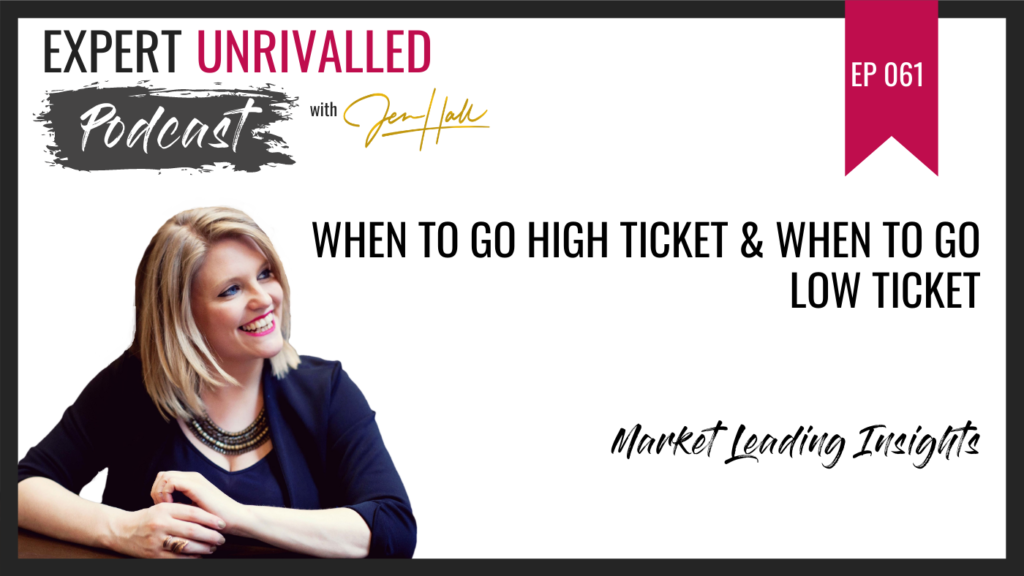There’s a time and a place for both high & low ticket offers – the question is – ‘WHEN?’
So many people are told what they should be selling but without considering the industry, the type of client, what’s financially beneficial for the business etc – you are just told that you should have a membership or that you should have a high-ticket offer.
In this episode, I’m putting all the cards on the table for you to make the best decision for your business right now.
Useful Links:-
Book a Call with Jen – bit.ly/claritycallpodcast
Send your emails to jen@jen-hall.com
[spp-transcript]

